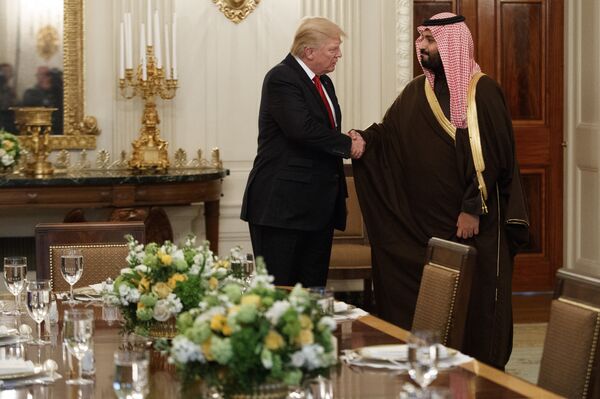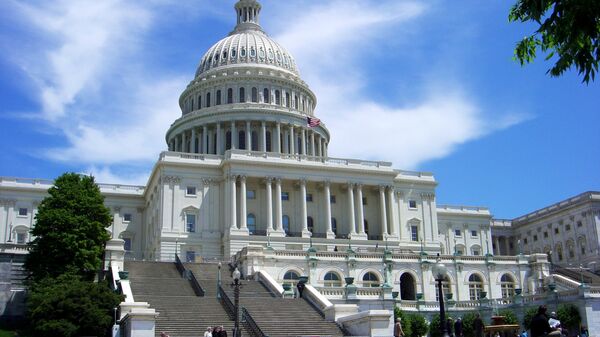Several senior Senate lawmakers including Democratic Senator Chris Van Hollen, Republican Senator Lindsey Graham, Democratic Senator Jeff Merkley and Republican Senator Jerry Moran have put together a bill looking to block a key US financing institution from providing funding for the transfer of American nuclear technology and equipment to Saudi Arabia unless Riyadh makes a formal, written commitment not to engage in uranium enrichment activities, Foreign Policy magazine has reported, citing a draft copy of the bill.
According to the outlet, the draft bill contains a statement that while Riyadh has an ambitious nuclear power programme, it has, to date, “demonstrated little willingness to accept strong non-proliferation measures.”
The bill reportedly proposes forcing the US Export-Import Bank, the official export credit agency of the United States government, to report to Congress on the details of any agreement on the transfer of nuclear technology or equipment to Saudi Arabia.
Furthermore, Saudi Arabia would be required to vow not to engage in uranium enrichment and reprocessing, sign a nuclear cooperation pact with Washington regulating its use of nuclear technology for civilian applications, and sign on to safeguard protocols outlined by the International Atomic Energy Agency.
Speaking about the legislative proposal, Senator Van Hollen said it was connected with the Trump administration’s alleged failure to inform Congress and the public about the sale of nuclear technology to the Saudis.
“We should never allow nuclear material to fall into the wrong hands," Senator Van Hollen said, speaking to FP, adding that he felt Saudi authorities 'couldn't be trusted.'
Earlier this week, the House oversight committee issued a report accusing businessman and Trump campaign contributor Thomas Barrack of using his relationship with the president to secure Saudi nuclear deal related contracts. House Democrats blasted Trump over the alleged deal, with committee chairman Elijah Cummings saying it served to “expose” how “corporate and foreign interests are using their unique access to advocate for the transfer of US nuclear technology to Saudi Arabia.”

No Bomb
The Trump administration has insisted that the nuclear deals with Saudi Arabia are limited to the peaceful pursuit of nuclear power. Earlier this year, Secretary of State Mike Pompeo said that the US would “never write a $150 billion check to the Saudis and hand them over the capacity to threaten Israel and the United States with nuclear weapons.” The $150 billion was a reference to the 2015 Iran nuclear deal, negotiated by the Obama administration, which promised to return tens of billions of Iranian wealth frozen abroad and to lift sanctions in exchange for a commitment by Iran not to pursue nuclear weapons.
In April, satellite images analysed by former International Atomic Energy Agency director Robert Kelley reportedly revealed that Saudi Arabia was well underway in building a 30-kilowatt Argentinian-designed research reactor, which would be ready to come on line before the end of 2019.
Here's a satellite image time series showing the King Abdulaziz City for Science and Technology where Saudi Arabia is building its first nuclear reactor pic.twitter.com/6NgoOUzpuv
— Schnuck Networks (@schnucknetwork) 3 апреля 2019 г.
Saudi Arabia has long sought to create a nuclear power industry to wean its electricity grid off of hydrocarbons as part of its “Vision 2030” development programme. Close to three dozen countries around the world have active nuclear power plants or plants under construction, with Iran, the United Arab Emirates and Israel being the only other countries in the region besides Saudi Arabia with a nuclear power programme. The only regional power believed to have access to nuclear weapons is Israel, although the country has a policy of ‘deliberate ambiguity’ regarding its alleged stockpile.


